Search Results
Showing results 1 to 20 of 22
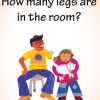
Mixing in Math Moments: Several 5-10 Minute Math Activities
Source Institutions
This website contains several activities. Mixing in Math Moments are activities that take 5-10 minutes that keep learners occupied, learning about the world, and using math on their own.

Dollar Signs
Source Institutions
In this activity, learners use number sense and mental math strategies to estimate the price of a sign.
Stack-o-Pennies Shop
Source Institutions
In this math activity, learners pretend there is a special store that lets you pay for toys by their height in pennies.
Race to the Dollar
Source Institutions
In this math activity, learners play a card game to practice adding coins quickly, just like a banker. First, learners create coin cards. Next, the cards are dealt to each player.
Work for Your Money
Source Institutions
In this math activity, learners earn "money" by completing simple tasks. Learners complete as many "jobs" as possible in a set amount of time.
Tip Topper
Source Institutions
In this math activity, learners role-play as wait staff at the Kidtropolis Diner. It's the end of the night and it's time for the staff to collect their tips.
Penny Estimation
Source Institutions
In this math activity, learners estimate how many pennies are in a jar by predicting and counting handfuls of pennies.
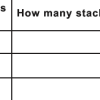
Piles of Pennies
Source Institutions
In this coin math activity, learners sort and stack 100 (one hundred) pennies into piles of 5 pennies each, 10 pennies each, and 20 pennies each.

The Snack Shop
Source Institutions
In this math activity (Page 11 of the Dining Out! PDF), younger learners count out the total amount of money needed to purchase trail mix using the fewest number of bills/coins possible.
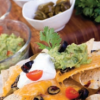
The Menu Game at the Terribly Terrific Taco
Source Institutions
In this math game (Page 15 of the Dining Out! PDF), learners figure discounts and/or profit increases for various food totals. Learners add decimals to $100.
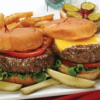
Joe's Place
Source Institutions
In this math activity (Page 8 of the Dining Out! PDF), younger learners select items from a menu and count out the total amount needed using the fewest bills and coins possible.
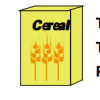
Number Sense and Computation: Food For Thought
Source Institutions
In this math lesson, learners identify and compare unit costs of given items. Learners use computation skills, problem solving and number sense to find the cost of an ounce of cereal.
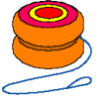
Solving Linear Equations: The Yo-Yo Problem
Source Institutions
In this math lesson, learners explore linear patterns, write a pattern in symbolic form, and solve linear equations using algebra tiles, symbolic manipulation, and a graphing calculator.
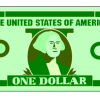
Measurement: Million Dollar Giveaway
Source Institutions
In this math lesson, learners apply measurement skills to determine, in dollar bills, the capacity of a suitcase.
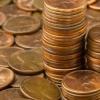
How Many Pennies?
Source Institutions
In this math activity, learners pretend there is a special store that lets you pay for toys by their weight in pennies.

Patterns and Relationships: Peddling Petals
Source Institutions
In this math lesson, learners use the setting of a flower-making fundraiser to explore a variety of patterns. Learners examine the patterns in a flower design made of triangles surrounding a square.
Pocket Change: Math and Coin Toss
Source Institutions
In this activity, learners will play a coin toss game where the highest total wins. Combine coin recognition, addition, and probability with a game learners can play on their own.
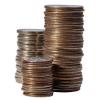
How Much is a Name Worth?
Source Institutions
In this math lesson, learners use simple addition facts to compute values (in dollars and cents) for their names.
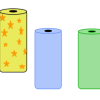
Number Sense and Computation: Soak It Up
Source Institutions
In this math lesson, learners compare products to determine the best product.
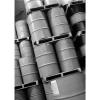
Computation and Estimation: Roll Out The Barrel
Source Institutions
In this math lesson, learners apply mathematical modeling to solve a real-world storage problem, in which a manufacturing company is given two options for storing oil barrels.
